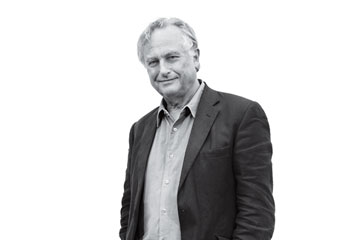
Your new memoir, An Appetite for Wonder, is mostly about your education. How would you explain the evolutionary advantage of teaching people to whom one is not related?
This is just one of the very many things which make humans very peculiar, and it's not just teaching--it's doing music, it's doing logic, it's doing mathematics, it's doing philosophy, it's writing books. Just about everything we do doesn't have a simple, naive, evolutionary explanation.
Does that mean they don't fit with neo-Darwinist theories?
All those things fit it, but in a very indirect way. We come into the world equipped with brains that were shaped by Darwinian natural selection to help us to survive under our wild conditions, which were the Pleistocene plains of Africa. Our brains had abilities and mechanisms like setting up goals and reciprocation arrangements, which cement our relationships with other people. And now that our brains find themselves in a totally alien environment, which has been built up by centuries of cultural history, only in a very indirect way can you interpret the sorts of things [we do].
Are you actually kind of a softy? In the book, you seem to do a lot of singing.
I'm quite a softy, yes. I have a blank spot with respect to visual art, but I have perhaps a compensating hypersensitivity to poetry and music.
You brought the word meme into popular use, and now you're trying to introduce dundridge. How would we use it in a sentence?
It comes from a [character in a] novel by Tom Sharpe. A dundridge is a minor official who has no flexibility, no discretion, no humanity. "The dundridges of the passport office are refusing to give me a new passport because I misspelled my name."
You write that you were felt up by a master in high school but it was no big deal back then. Have times changed that much?
It should never have been acceptable, of course, but it was much more normal. And now society has developed a horror of it, and rightly so. But I do think it's important to not be too judgmental of past ages by the standards of ourselves, in the same way we don't condemn George Washington or Thomas Jefferson for having slaves, because that's simply what happened in those days.
But we do condemn Thomas Jefferson and George Washington for having slaves, right?
Yes, I suppose we do, but I think it is also true that the moral standards of a society progress with great speed. I notice it even within my lifetime, that if you read just ordinary popular novels from, say, the 1920s, they're filled with racist words.
Are you a fan of evolutionary psychology?
I think it has been unfairly demonized. It makes sense to interpret quite a lot of modern human behavior in terms of our evolutionary past, never forgetting this overlaying by cultural history. But I think it's taken too far when people jump to a cute or ingenious hypothesis for why we do something and then run away with the hypothesis without bothering to test it.
You were at UC Berkeley in the late '60s. Yet you never took LSD. How did this happen?
Not only did I not take LSD, I didn't even take cannabis.
Do you have any regrets about that time?
I don't have regrets about the antiwar politics. I was proud of being teargassed at the People's Park protest, but I think with hindsight [that protest] was a rather discreditable episode.
Reader question from John Blaxland: Given how little we know about the universe, how can we possibly be sure there is no God?
There are all sorts of things we can't be sure of--we can't be sure there are no leprechauns and fairies. Science in the future is going to be revealing all sorts of things which we have no idea of at present, but it's extremely unlikely that it would happen to home in on an idea from a Bronze Age tribe in the desert.
